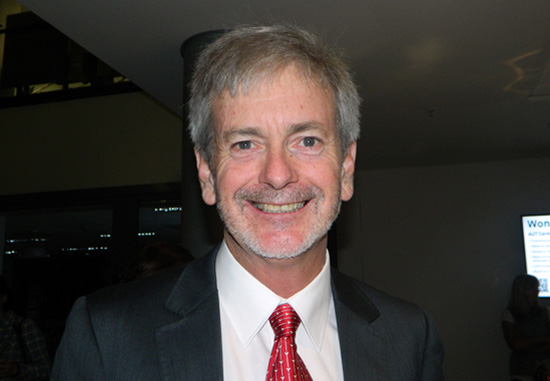
AUCKLAND (Radio New Zealand / Pacific Media Watch / The Australian): A leading Australian media law academic says new so-called "counter-terrorism laws" will effectively criminalise journalists who report on Australian intelligence services.
It was quite bizarre that journalists who came across any information involving government secrets would have to first contact the Australian Security Intelligence Organisation (ASIO) and "speak to a spy" to see if they would be in breach of the law by reporting the secret, Professor Mark Pearson of Griffiths University in Queensland, has told Radio New Zealand's Mediawatch programme.
The National Security Amendments Bill (No. 1) was passed by Australia’s House of Representatives earlier this month and prescribes up to 10 years in prison for journalists who report on ongoing intelligence operations, which the Australian government says ought not to be disclosed. The Australian Security Intelligence Organisation will get almost $200 million more to implement the new law which also gives spooks wide powers to tap computers.
Dr Pearson, who is also a research associate of the Pacific Media Centre and on the editorial board of Pacific Journalism Review, said the law was a "fundamental change" from the way things had been done up until now, where newspaper editors would have been approached by security officials and have the choice not to hand over confidential information.
"This is quite different because it offers journalists no exemptions or defence in the public interest, so journalists are effectively risking five to ten years in jail," he said.
According to the new law, if a journalist found out about an intelligence operation, he or she would never be able to report in it, ever, without risking imprisonment.
"We suspect it is actually aimed at the likes of your Edward Snowdens and your Julian Assanges and Wikileaks and whistleblowers who might want to get sensitive security material and publish that for all the world to see" Dr Pearson told Mediawatch.
There were all sorts of examples where there could be wrongdoing by government which should be exposed by the media, Dr Pearson said.
'Chilling effect'
Nicky Hager, the author of Dirty Politics, a recent book investigating manipulation of the media by New Zealand politicians, said the recent 10 hour police raid on his home would have a chilling effect on the media.
Hager was out of town when police arrived to carry out the raid but told police over the phone that their raid would endanger confidential sources, whereas journalists are permitted by law to keep sources confidential:
"It is really crossing a line to think that it's ok to come and do someone's house over for writing a book ...they were very clear that I am only a witness, that I hadn't done anything wrong. I think it should be chilling to the whole media, actually, the idea that the police can turn up and think that rifling through your whole life, and all your files, and all your projects and stuff is a legitimate way of them trying to carry on their investigation".
Hager said he would rather go to jail than reveal the sources for Dirty Politics, and now "expects a legal tussle to get his stuff back".
The raid was carried out under the Search and Surveillance Act 2012, Mediawatch reported.
This act empowers the police to make journalists hand over information to a judge who will decide if it shows evidence of a crime. If so, even confidential source information may be handed over to police to use to make a case.
The conservative New Zealand government has previously said that journalists over-reacted to say this would have a chilling effect on the media.
This work is licensed under a Creative Commons Attribution-NonCommercial 3.0 New Zealand Licence.




